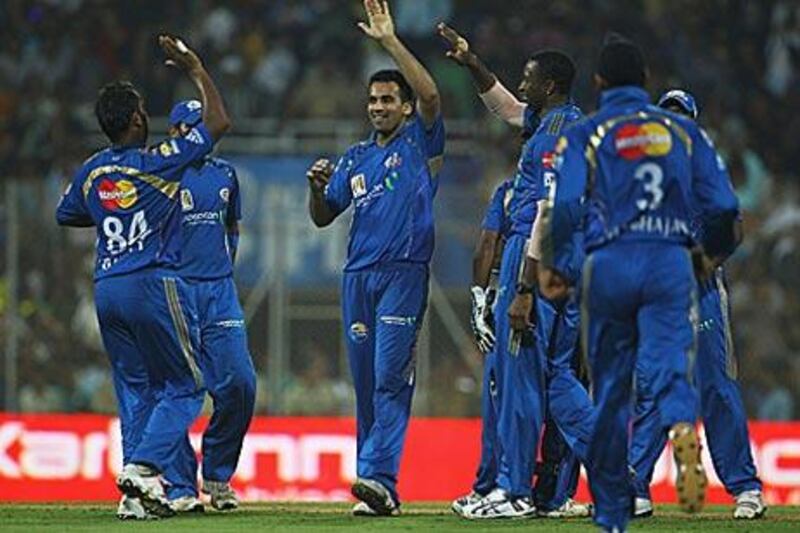Imagine in football Burnley winning the English Premier League or Tenerife leading the Primera Liga table in Spain. You may as well believe in the tooth fairy. Such fairy tales rarely happen. In most sports that lack a salary cap, the playing field has become more skewed than ever. The rich get richer, and the poor, at best, aim for survival.
Each Premier League season for the last decade or more has started with only four teams harbouring genuine title ambitions. For the rest, a Europa League place or just staying afloat is as good as it gets. Lalit Modi and the Indian Premier League (IPL) have been on the receiving end of much criticism over the past two years; for everything from the cheerleaders to the glamour train that follows the teams around.
But those that envisioned the IPL have got one thing right: the salary cap - which will stay at US$7million (Dh25.7m) for a fourth season next year - giving each of the eight teams an equal chance of glory. Victory and defeat depends on the players and the coach. Buying success a la Silvio Berlusconi in the late 1980s with AC Milan or Roman Abramovich in the new millennium with Chelsea, is simply not an option.
This year's IPL table is instructive in that regard. The Mumbai Indians, the most expensive of the franchises back in 2008, lead the way with six wins and just a solitary defeat. In the first two seasons, they could not even make the semi-finals. Languishing at the bottom are Kings XI Punjab, who finished second in the league phase in the first season on the back of a mountain of runs from Shaun Marsh.
The Delhi Daredevils lie in second place, but have already lost three games on the trot this season. If the Royal Challengers Bangalore win their games in hand, then they can leapfrog the Daredevils into second place. As for Mumbai, their work is far from done, with five of their last seven fixtures away from home. Apart from Kings XI, who have been consistently poor - even their lone win was a gift from a sloppy Chennai Super Kings side - each of the other teams has shown glimpses of title-winning form.
The Kolkata Knight Riders started off superbly and then slumped, while the Rajasthan Royals drove Shane Warne to such despair that he reckoned they would struggle against his son's Under 12 side. Since then, they have won four of their last five games. As seven teams jockey for a last-four place over the next fortnight with Mumbai hogging the inside rail, it will be interesting to see how each one utilises their overseas contingent.
Paul Collingwood has slotted into the Daredevils XI after not even playing a game last season, while Kevin Pietersen was straight back into the Royal Challengers' line-up after flying in from touring Bangladesh with England. Given their threadbare pace bowling resources, Chennai will almost certainly play Doug Bollinger, the Australian, once he arrives from New Zealand on April 5. As for the Knight Riders, their policy will be horses-for-courses. Sourav Ganguly says that he knows who his four best overseas players are, but apart from Chris Gayle and Charl Langeveldt, the others are likely to be rotated.
For the Chargers, Kemar Roach's extra pace offers a different option to Chaminda Vaas's nagging accuracy. The Chargers, rock-bottom with two wins in season one, are the perfect example of what makes the IPL such compelling viewing. Having sneaked into the last four in South Africa last year, they beat the in-form Daredevils and then Bangalore to take the trophy. For the fans, it guarantees a roller-coaster ride. Yesterday's zeroes are today's heroes, and no one is quite sure where the next twist is coming from.
And as long as the salary cap stays in place, ensuring an even distribution of talent, each season will continue to be as unpredictable as an O Henry short story. Dileep Premachandran is associate editor at Cricinfo and Asian cricket correspondent of The Guardian sports@thenational.ae





